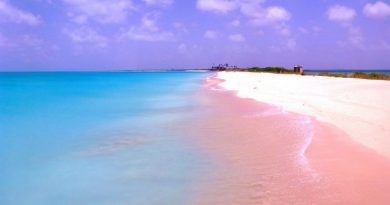Marine biologist says heavy rains have eroded Antigua’s coastal areas and unfiltered silt will affect coral reefs
A marine biologist is underscoring the need to preserve Antigua’s wetlands in
order to stop the erosion of soil in certain area.
John Mussington, an environmentalist from Barbuda, made the comment with
regard to the torrential rains that fell across the country last week, bringing
more than eight inches between Tuesday and Thursday.
In many instances, communities in low-lying and flood-prone areas
experienced severe flooding.
A day or two after the adverse weather, Mussington says he travelled to
Antigua via sea. From the ferry, he says, he witnessed the brown coastal areas
– evidence that, as a result of last week’s heavy showers, the topsoil in these
places is washing away
Because of man-made climate change, Mussington says, things are out of
whack, as seen from the totally unpredictable weather. He notes that there
are heat waves on some days and torrential rain that causes flooding on
others.
Without the wetlands to provide some filtering, he points out, all the mud and
silt running off the coastal areas are wreaking havoc and killing the marine life
that spawns in the coral reefs.
However, the marine biologist notes, this is not the case on Barbuda – for now
– as many of the wetlands remain intact, although there are moves to destroy
them through so-called development.
Meanwhile, Mussington says that back-filling ponds is a primary reason for
flooding in many parts of Antigua, including on the Sir George Walter
Highway, which crosses a wetland area.
According to Mussington, for this and many other reasons, Barbudans are
fighting to preserve their lands – especially since it is a society that depends
heavily on the marine sector for its livelihood and sustenance.
That was marine biologist John Mussington on the Good Morning Sass
Show.




